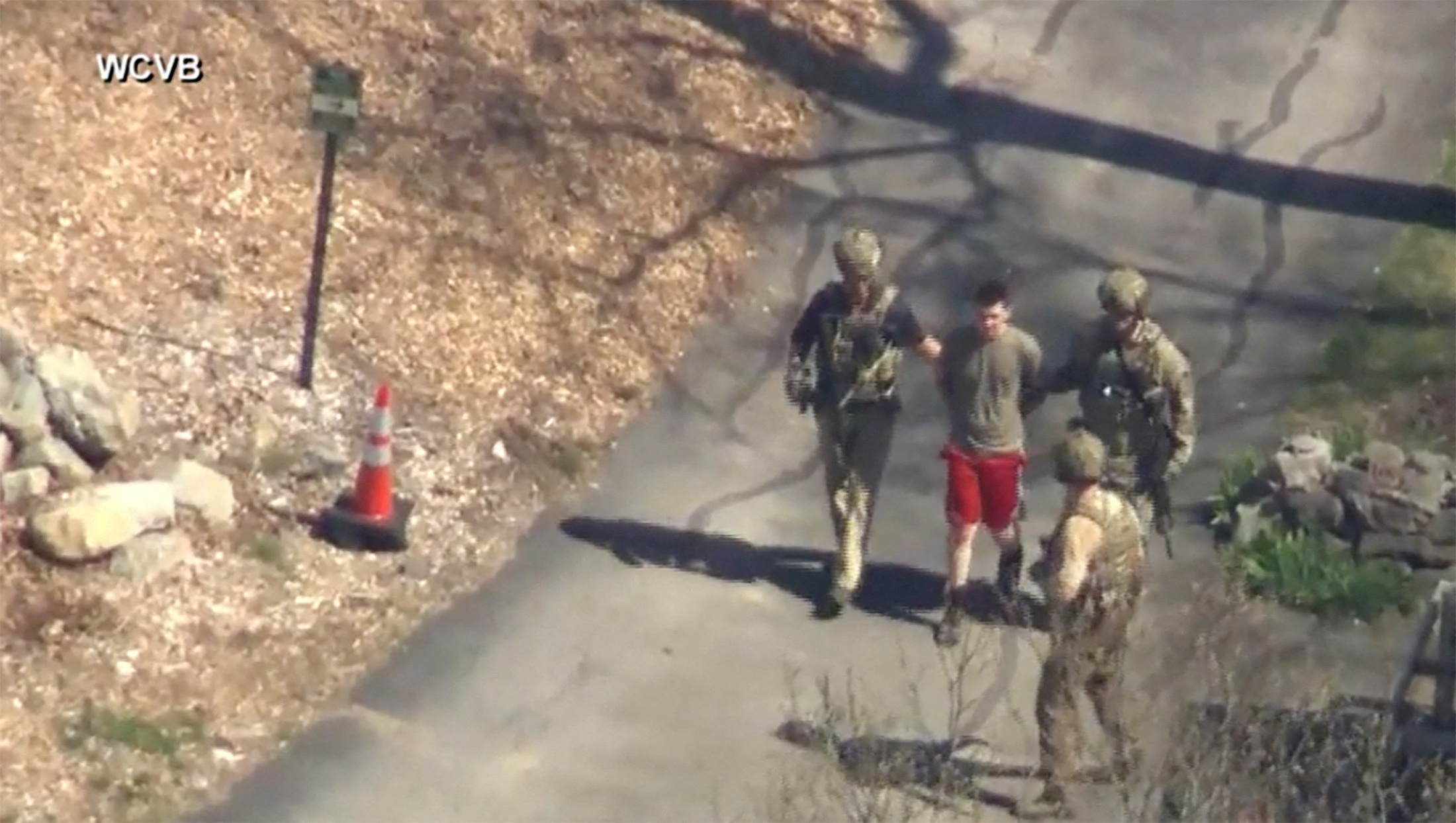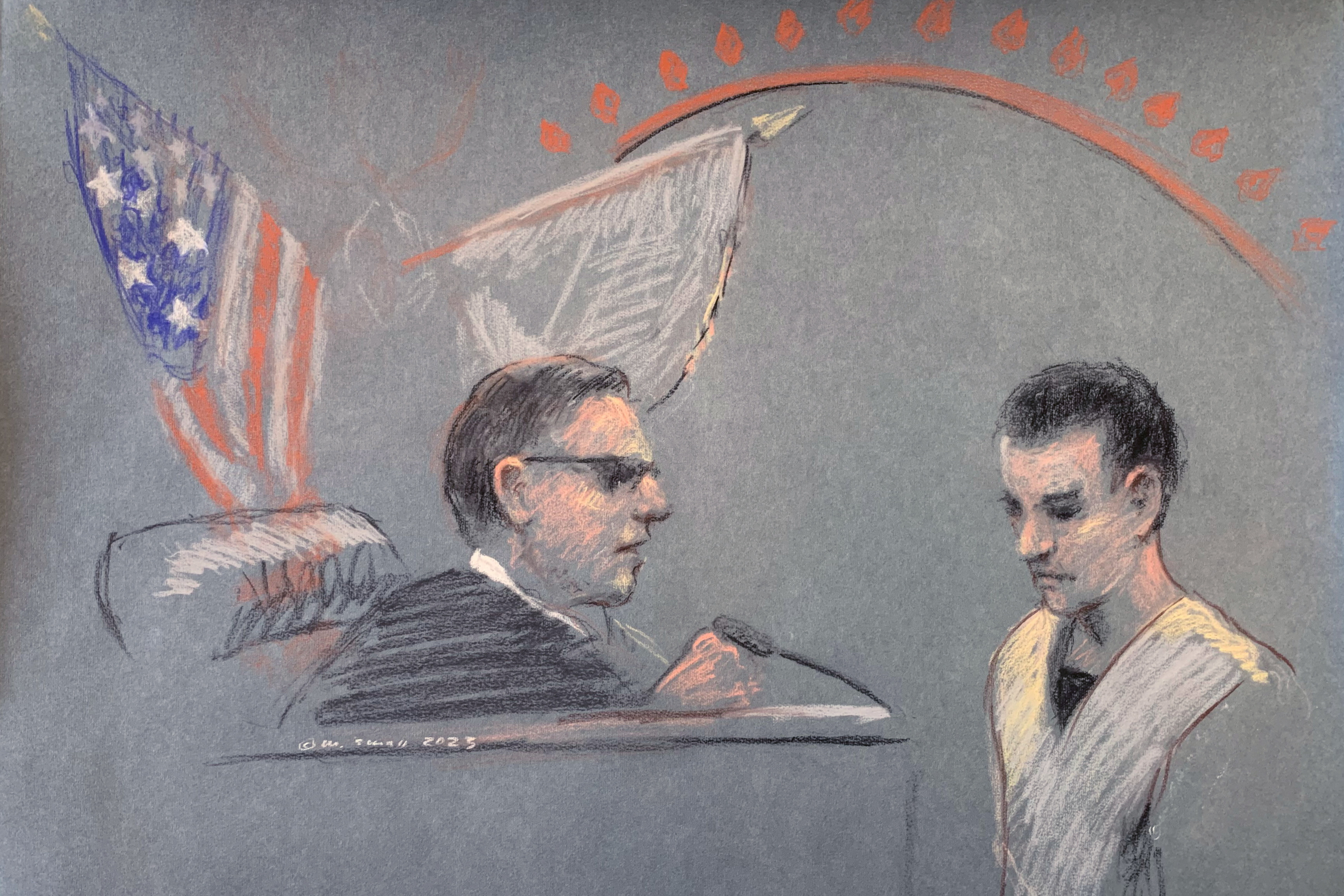
How did a 21-year-old junior reservist allegedly gain access to top-secret US documents?
Access to classified information is actually much more common than it seems, according to a BBC report.
Jack Teixeira, who appeared in court on Friday, worked as a cyber transport systems technician with the US Air National Guard.
The USAF website outlines the minimum requirements for this job. These include, but are not limited to: high school diploma, basic knowledge of electronics and networking, normal color vision, driver’s license to drive government vehicles, experience installing network infrastructure for voice, data, and video, 7.5 weeks completion. basic military training. Applicants must be between 17 and 39 years old.
Experts told the BBC that this review process is fairly comprehensive. It includes a study of the candidate’s education, financial history and relationships, as well as interviews with people from his environment.
And to have access to highly classified information even at the age of 21 is not uncommon.
“For people his age, it’s quite normal to have access to classified information,” Alexandra Seymour, a research fellow at the Center for a New American Security Program in Technology and Homeland Security, told the BBC.

According to Department of Defense statistics, about half of active duty members of the U.S. armed forces are under the age of 25.
While the exact details of Teixeira’s job are still being worked out, Seymour says his position likely required access to a wide range of information.
“Often, non-commissioned officers at their level act as a support group for senior officers. So perhaps he “needed to know” if he was doing preparatory work for someone higher up or writing briefings,” she told the BBC.
Post-9/11 Changes and Leaks
Dan Lomas, professor of intelligence and security at Brunel University, says thousands of people in the US military and intelligence services have a similar level of access.
“It’s part of trying to get as much information as possible for analysts to use,” he told the BBC. “And that means potentially providing access to information that could be leaked.”
Access to this information began years after the September 11 attacks on New York and Washington, says Dan Lomas, when one of the key weaknesses identified by government investigations was the failure to share information between US government agencies.
It is not clear exactly how Teixeira allegedly managed to extract secret documents and steal them from the military base in electronic or printed form. However, Dan Lomas points out that past security breaches, such as the Edward Snowden and Chelsea Manning leaks, have shown that security rules are not always strictly enforced.
Mark Zaid, a national security lawyer, told the BBC that Teixeira’s position would give him access to the Joint Worldwide Intelligence Communications System (JWICS), which he called a “library of information” about US intelligence.
Meanwhile, according to the criminal complaint, there is a log of at least some of Teixeira’s access to secret systems, which shows that the alleged perpetrator was looking for the word “leak” about last week, when the documents were first discovered by the public and a journalist. attention.
System loopholes
Defense Secretary Lloyd Austin announced on Thursday a Secret Service access review. During a press conference, he said that “every member of the US military, Department of Defense official, and employee with access to classified information has a formal legal and ethical obligation to protect it and report any suspicious activity or behavior.”
But Dan Lomas told the BBC that US intelligence could be entering a “difficult period” and that the new restrictions would limit information sharing between agencies.
Kurt Volker, a former US ambassador to NATO, says US politicians still need information.
“You have to spread the word, but you have to do it wisely,” he told the BBC. “You have to find smarter ways than constant access to information for everyone.”
Either way, says Seymour, the information system relies on people to manipulate the data.
“This raises the question of how we educate people on how to handle classified information,” he tells the BBC. “It exposes loopholes in the system.”
The FBI agent’s affidavit states that Teixeira “would have signed a lifetime non-disclosure agreement” to take on the role, and that he would understand that revealing classified information could lead to criminal charges like the ones he faces now. .
Revelations
It is reminded that The classified documents, some of which were subsequently circulated on Twitter and Telegram to other social networks, mostly reveal US intelligence concerns about the viability of a Ukrainian counterattack against Russian forces.
They also point to Washington gathering intelligence on its closest allies, especially Israel and South Korea.
According to the Washington Post, they also show that US intelligence was aware of the overflight of sensitive equipment by four other Chinese spy balloons, in addition to the one seen in February and shot down by the US military.
According to the paper, one of these spy balloons flew mostly over a US aircraft carrier maneuvering its airborne group in the Pacific.
According to The New York Times and The Washington Post, his Discord group, led by Teixeira under the username “OG”, was formed in 2020 based on a mutual passion for firearms, video games, and religion.
According to the Washington Post, OG asked other members of the Discord group not to release the documents, claiming he had no intention of becoming a public interest witness.
He has been critical of the state, denouncing its “abuse of power”, law enforcement forces, and the intelligence community.
Teixeira began leaking classified information in December, according to an FBI agent. First, excerpts from the paragraphs of the documents, then photographs of the documents themselves.
heavy accusation

However, yesterday, Friday, a federal court indicted young soldier Jack Teixeira.
According to the court document, the member of the Massachusetts Air National Guard is charged with “unauthorized possession and transmission of information related to national defense” and “unauthorized removal and storage of classified documents or materials.”
On these two counts, he can be sentenced to 10 and 5 years in prison, respectively. US Attorney General Merrick Garland vowed to seek “very harsh sentences.”
The young man was taken into custody until the next hearing scheduled for Wednesday.
The day after his arrest, all eyes were on this young military man, who took advantage of his position to broadcast confidential and classified documents on operations in Ukraine to a closed group on the social network Discord.
Since Thursday, aerial photographs of his arrest in Dayton, a small rural Massachusetts town, or a photograph of him in military uniform, have been circulating around the world.
Source: BBC, AFP, USAF, APE-MPE.
Source: Kathimerini
Anna White is a journalist at 247 News Reel, where she writes on world news and current events. She is known for her insightful analysis and compelling storytelling. Anna’s articles have been widely read and shared, earning her a reputation as a talented and respected journalist. She delivers in-depth and accurate understanding of the world’s most pressing issues.